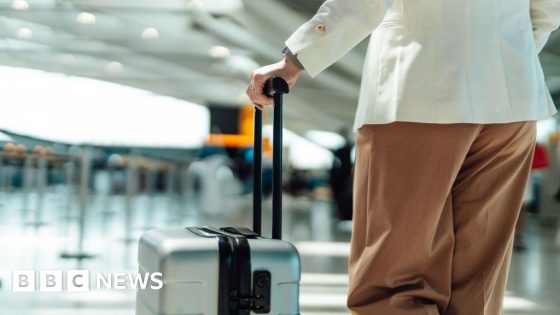Taiwan raised its warning level for travel to China on Thursday, urging its citizens not to visit there unless necessary after Beijing spelled out potential punishments — including execution in extreme cases — for what it called “diehard supporters of Taiwanese independence.”
China regards Taiwan, a democratically governed island of 23 million about 100 miles off the mainland coast, as its territory. It demands that Taiwan ultimately accept unification and has long denounced Taiwanese who oppose its claims to the island.
Last week, China turned up the pressure, issuing legal guidelines that detailed the steps it might take to punish supporters of Taiwanese self-rule. They came as tensions between U.S.-backed Taiwan and China ratchet ever higher. Last month, Taiwan swore in a new president, Lai Ching-te, who has vowed to preserve democracy on the island and is denounced by Beijing.
The new rules adopted by China authorize execution for what it describes as exceptionally severe cases of Taiwanese separatism, though the language stops short of saying exactly what actions might constitute a severe offense.
In response, Taiwan’s Mainland Affairs Council, which deals with policy toward the mainland, said Beijing had “raised the risk to personal safety for nationals traveling to China, Hong Kong and Macau” by “clinging to its own position” on Taiwan.
The new president, Mr. Lai, criticized the new rules. “China has no right to sanction Taiwanese people for their political opinions or pursue prosecution across borders,” he said on social media earlier this week. “Democracy is not a crime; autocracy is what’s truly malicious.”
Mr. Lai called on China to engage in dialogue, and has stopped short of calling for Taiwanese independence. He says he wants to preserve the status quo, with Taiwan enjoying autonomous governance.
Beijing, however, has denounced Mr. Lai, declaring him a separatist and greeting his new government with inflammatory rhetoric and a flurry of military exercises near the island.
Despite Beijing’s escalating antagonism and its military muscle-flexing, many Taiwanese appear sanguine. A recent poll showed that most people on the island believe that the United States would intervene should China invade, but some question whether Washington and their own government have nettled Beijing needlessly.
Beijing has a history of detaining people linked to Taiwan.
In 2023, a Taiwanese-based Chinese citizen, Li Yanhe, who published books critical of the Chinese Communist Party, was charged with crimes against national security. And in 2022, a democracy advocate, Li Ming-che, was released after serving five years in Chinese prison over accusations of subverting the government.
A generational gap in travel has also emerged among Taiwanese, fraying ties to the mainland. A 2023 poll showed that travelers over 40 years old were much more likely to visit China than their younger counterparts, who were more likely to visit Japan.
Source Agencies


